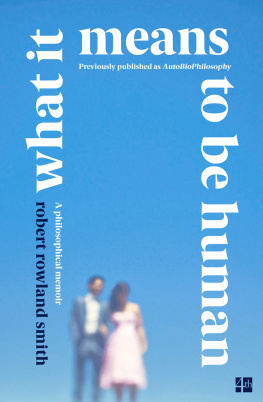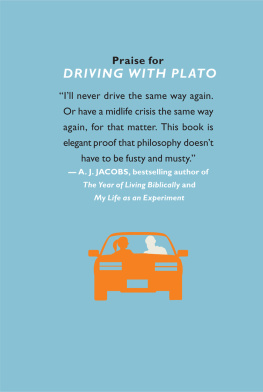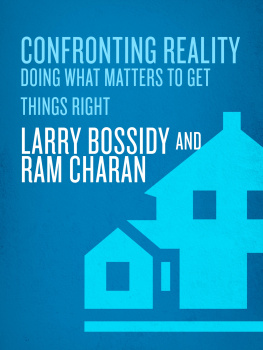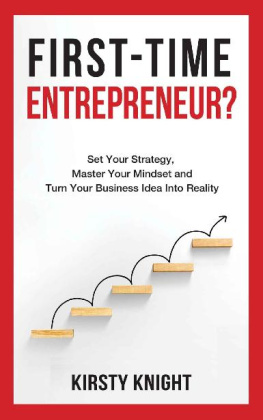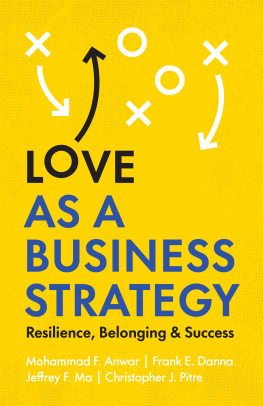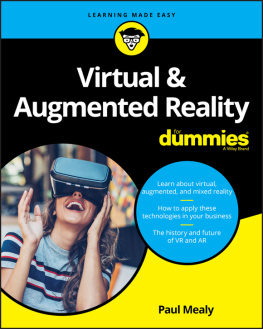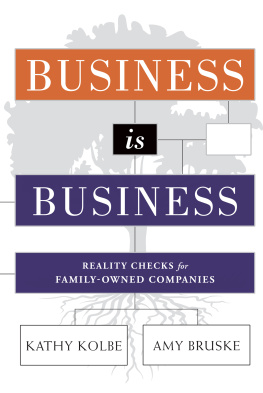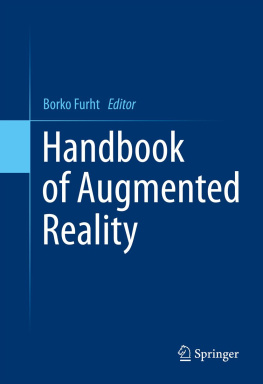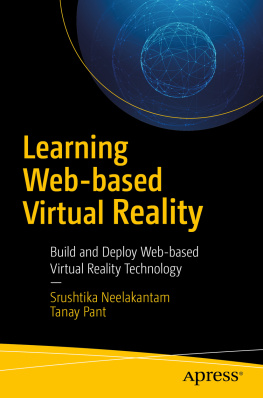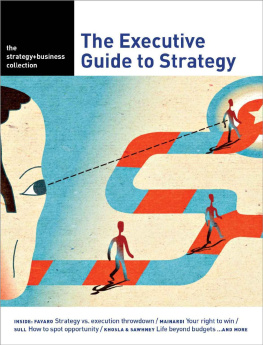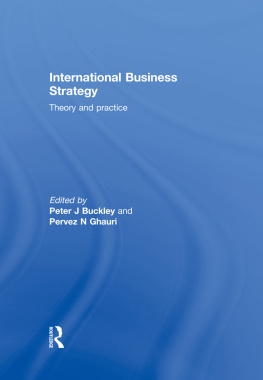THE REALITY TEST
ROBERT ROWLAND SMITH began his career as a Prize Fellow of All Souls College, Oxford. He went on to become a partner in a management consultancy. Today he works independently with the leaders of some of the worlds foremost organisations, helping them tackle the realities of business. As well as writing several books, Robert has been a columnist for both the Evening Standard and Sunday Times. He is on the Faculty of the School of Life and the London Graduate School, and sits on the board of the Tavistock Institute of Medical Psychology. Robert also works with Oxford Business School on client engagements.
ALSO BY ROBERT ROWLAND SMITH
Derrida and Autobiography
Breakfast with Socrates
Death-Drive
Driving with Plato
On Modern Poetry
THE REALITY TEST
STILL RELYING ON STRATEGY?
ROBERT ROWLAND SMITH

First published in Great Britain in 2013 by
PROFILE BOOKS LTD
3A Exmouth House
Pine Street
Exmouth Market
London EC1R 0JH
www.profilebooks.com
Copyright Robert Rowland Smith Ltd., 2013
10 9 8 7 6 5 4 3 2 1
Typeset in Palatino by MacGuru Ltd
info@macguru.org.uk
The moral right of the author has been asserted.
All rights reserved. Without limiting the rights under copyright reserved above, no part of this publication may be reproduced, stored or introduced into a retrieval system, or transmitted, in any form or by any means (electronic, mechanical, photocopying, recording or otherwise), without the prior written permission of both the copyright owner and the publisher of this book.
A CIP catalogue record for this book is available from the British Library.
ISBN 978 1 78125 079 2
eISBN 978 1 84765 918 7
This book is based on my day-to-day experience over many years of advising a wide range of organisations, large and small, public and private, from different corners of the globe. I couldnt have had that experience without the clients who invited me in. I dedicate it to them.
Few people have the imagination for reality.
Goethe
CONTENTS
PREFACE
No strategy survives contact with the enemy. Its a proverb I first heard while helping to run a discussion among the top brass of the Ministry of Defence, in London. Because its based on estimates, a strategy is essentially a work of fiction. It cant stand up to the reality of war.
Business strategies are no less vulnerable than their military equivalents. Even strategies that are exemplars of analysis cannot account for all that will happen in the heat of business. Why? Because such strategies assume that business is as rational as themselves. Unfortunately, its a lot messier than that. What gets in the way of the strategys seamless execution is reality. Thats what this book is about.
The obvious solution, you would think, is to load the strategy with as much reality as possible. But how?
You have to get beyond the typical strategy questions. Questions such as What is our revenue target? or What is our market proposition?. Being typical, theyre easily replicated by the enemy, the competition. The result is that most strategies are variations on a small number of themes: grow, divest, diversify, consolidate, focus. And so the market fills up with companies pursuing very similar goals. Yet since some companies falter where others flourish, its probably not those strategies that make the difference. They dont provide enough of a variable. Macroeconomic factors aside, the real reason businesses fail is that they run out of energy, or they dont believe in their product, or their leaders are too vain to heed advice, or they treat their customers like idiots, or they are sabotaged from within. Such are the realities that strategy is too rational to account for.
The purpose of this book is to bring such realities into focus so that anyone leading a business will be equipped to deal with them. In order to make it easier for leaders to apply them to their own business I have explored these realities by answering a number of pointed questions. Three quick examples from the chapters ahead:
1. Did the past never happen? I have seen too many organisations repeat mistakes because they dont take the time to learn lessons. Again, thats partly due to the obsession with strategy, which is all about the future; its as if the past didnt exist. But because it actually happened, the past is more real than the future, which hasnt happened yet. Its a far more reliable source of information. I tell the story of a fashion house that keeps making the same errors because it only ever looks ahead.
2. Why isnt everything perfect? Strategies often forget that organisations arent perfectly honed delivery machines, but are made up of real people. I relate my experience of the organisation that tried to automate every possible process, only to realise that some decisions just couldnt be left to a machine. Only humans could compute the complex issues thrown up when what the strategy predicted fell foul of the reality that actually occurred.
3. What do you tell yourself? As in real life, people in business sometimes believe things about themselves that arent true. In the case of one senior executive I coached, the gulf between his self-perception and the reality was vast. It was only as a result of being confronted with the reality that he could achieve the level of self-awareness necessary for him to change and for his colleagues to get behind him once more.
Real, pointed questions like these drive at the heart of what makes a business viable. They flush out the issues that most strategies do not. The issues can then be addressed and resolved. Conversely, if such questions arent raised, the issues fester, and that can have disastrous consequences. Unasked is unarmed.
For example, I remember the law firm, now defunct, that every year vowed to shift from a model of premium services to premium clients for premium fees to one of high-volume, low-margin transactional services for all and sundry. Their strategy was to grow, and they didnt know how else to do this. Over the years, they edged towards the new model, but each time they edged a little further, one of the partners would leave. They might have wanted to grow, but theyd never posed the key question that growth implied: Do we want to change? The answer would have been no they liked their premium ways. Small wonder they died a slow death.
What I have done is pull together the most widely applicable of such questions from my experience of working as a consultant to boards and senior management teams (needless to say, Ive disguised organisations and individuals to preserve confidentiality). The questions are designed to touch on the reality that strategy doesnt reach. As my background in philosophy taught me in my twenties I was an Oxford don asking one good question can shed more light than answering lots of bad ones.
Each question has a short chapter attached. The chapters can be read in any order, but I have grouped them to narrow in from the macro to the micro. The first group asks about how your business stands in the grand scheme of things; the last one probes what its really like to be a leader. And although all of them suggest practical ways of changing your approach, they can be read simply as food for thought. Business is about doing, but the best doing is based on the best thinking.
PART 1
IN THE GRAND SCHEME OF THINGS
INTRODUCTION
As its title suggests, this first part looks at your business in the widest possible perspective, the point being that businesses exist not only in the market but also in the real world. They are much more than players in a game of business strategy. They provide jobs for people, they make an impression on their customers, they pay tax to governments, they must satisfy their shareholders, they give to or take from society, and they are remembered or forgotten when they disappear.
Next page

